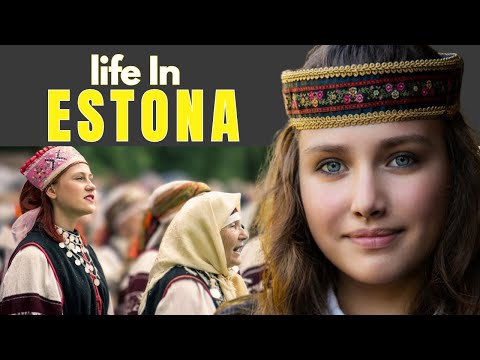
Nestled in Northern Europe, bordered by Latvia, Russia, and with coastlines along the Baltic Sea, Estonia is a country renowned not just for its picturesque landscapes and medieval architecture, but also for its distinctive culture. With a history that spans back to medieval times and a modern reputation as one of the most digitally advanced countries in the world, Estonia presents a fascinating blend of old and new. But what aspects of Estonian culture might be considered shocking or surprising to outsiders? Let’s delve into some of the unique cultural facets of this intriguing country.
#### Digital Society
Perhaps one of the most startling aspects of Estonian culture is its advanced digital society. Estonia became the first country to offer e-Residency — a government-issued digital identity that allows entrepreneurs from around the world to start and manage a global business in the EU. Moreover, almost every bureaucratic task is manageable online, from voting to signing documents. This high level of digital integration is both impressive and somewhat surreal for visitors from less digitally-innovative countries.
#### A Silent Space
Estonians are known for their love of silence and personal space. This cultural characteristic might be shocking to visitors from more effusive cultures. In Estonia, it is common for people not to engage in small talk with strangers and even avoid sitting next to other people if there are other seats available. This preference for solitude can be observed everywhere from public transport to cafes.
#### Sauna Culture
The sauna plays a significant role in Estonian social life and wellness. It’s more than just a place to bathe; it’s where families bond, friends chat about life, and business meetings take place — all while sweating profusely! The tradition is so embedded that even the smallest apartment buildings usually have a sauna. For foreigners, the idea of discussing business or personal matters in such an intimate setting might indeed come as a shock.
#### Language Layers
Another surprising aspect about Estonia is its language complexity. While Estonian is the official language — known for being one of the hardest languages globally due to its complex grammar — many citizens are multilingual, fluent in English, Russian, Finnish or German. This linguistic ability highlights Estonians’ connectivity and adaptive nature.
#### Celebration of Singing
One of Estonia’s most breathtaking cultural events is the Laulupidu or The Song Festival. Occurring every five years, this massive choir event gathers tens of thousands of participants on stage with audiences equally vast, celebrating Estonian history and unity through song. The sheer scale and emotional intensity of Laulupidu can be quite overwhelming for first-time viewers.
#### A Deep Connection with Nature
Many Estonians maintain a profound connection with their natural surroundings which influences much of their daily lives and traditions. Whether it’s mushroom picking in forests during autumn or ice skating on frozen lakes during winter, nature isn’t just an escape but a vital part of who they are.
#### Punctuality
In Estonia punctuality is taken very seriously; being late can be seen as a sign of unreliability or disrespect—quite shocking for those accustomed to more relaxed attitudes towards timekeeping elsewhere.
### Concluding Thoughts
Estonia’s culture contains multitudes — from digital innovation that borders on science fiction to ancient traditions deeply rooted in nature’s rhythms. Visitors often find themselves surprised by how seamlessly these elements coexist within this small yet vibrant country.
For anyone looking forward to experiencing cultural shocks that challenge their perceptions while providing enriching experiences should consider Estonia—a place where tradition meets tomorrow.
